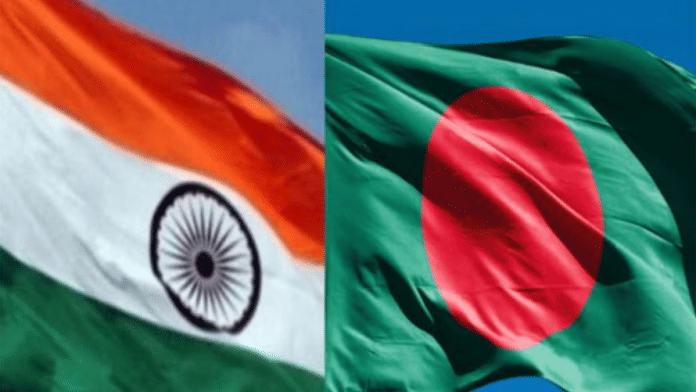New Delhi: India has imposed a number of restrictions on select exports, including ready-made garments, from Bangladesh through land-ports across the North East, as a means to “restore equality” in ties.
This development Saturday follows the imposition of Dhaka’s restrictions on Indian imports from the region.
“Land port restrictions imposed by India on select exports from Bangladesh to the north east are expected to restore equality in the relationship. While India had hitherto allowed all exports from Bangladesh without restrictions, the transit and market access to the North East had been restricted by Bangladesh. This measure by India restores equal market access for both countries. Bangladesh has been seeking equality in engagement with India,” a person familiar with the matter said.
“The relationship with Bangladesh will be on reciprocal terms. Ready-made garment imports from Bangladesh restricted to only two seaports (Kolkata and Nhava Sheva, Mumbai) is a reciprocal measure to Bangladesh imposing similar trade restrictions on Indian yarn and rice as well as selectively enhanced inspection on all Indian goods exported to Bangladesh,” the person added.
Ties between New Delhi and Dhaka have been tense for months. The move by the Ministry of Commerce and Industry to restrict the import of ready-made garments from Bangladesh to two sea-ports also imposed restrictions on the flow of other goods from Dhaka through the land-ports across the states of Assam, Meghalaya, Tripura, and Mizoram.
Some of the other goods restricted from entering India’s land-ports in these states, along with two land-ports in West Bengal, include fresh fruit flavoured carbonated drinks, processed food items, cotton yarn and yarn waste, wooden furniture and plastic finished goods.
The imposition of these restrictions come roughly a month after India also cancelled the transshipment agreement, which allowed Bangladesh export to export cargo to third countries via Indian airports and seaports. The transshipment agreement was signed in 2020. India cancelled the agreement citing congestion at its ports.
The restrictions for ready-made garments from Bangladesh is set to hit its exporters quite a bit, as the country exported roughly over $600 million worth of garments to India in the 2024-2025 financial year, according to data available from the ministry. A large percentage of those exports were likely through land routes, given the number of border crossings available for trade.
The actions by New Delhi come as Dhaka has increased the customs check of goods coming from India at its land-ports, which have caused substantial delays for Indian traders. Last month, Bangladesh suspended the exports of cotton yarn from India via its land ports. Rice imports from India via Benapole and Hili land ports were also suspended last month, following the expiry of the duty-free window on 15 April.
“Bangladesh needs to realise that it cannot cherry pick terms of bilateral trade solely for its benefit or assume the North East is a captive market for its exports, while denying it market access and transit,” the person familiar with the matter said.
The curbs come roughly a couple of months after the head of Bangladesh’s interim government Muhammad Yunus, claimed that Dhaka is the “only guardian of the ocean” for India’s North East, pointing out its land-locked status, while he was in China for an official visit. Yunus was urging Chinese investors to invest in Bangladesh, highlighting the North East of India as a captive market.
“As underlined by Prime Minister Modi, the North East is integral to BIMSTEC (Bay of Bengal Initiative for Multi Sectoral Technical and Economic Cooperation). The equal market space now available in the resource-rich North East is expected to give a fillip to manufacturing and entrepreneurship in the region under the Atmanirbhar Bharat schemes and policies,” added the person.
For India, the BIMSTEC has come into focus as a gateway to South East Asia, with a specific focus being given to the regional grouping following the summit in Bangkok last month. Prime Minister Narendra Modi met with Yunus on the margins of the summit, which was the first meeting between the two leaders since the ouster of former prime minister Sheikh Hasina last August.
(Edited by Tony Rai)






